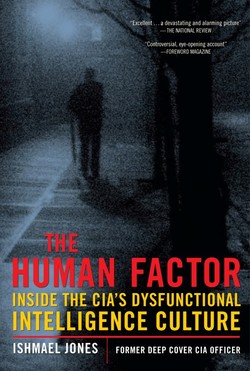Читать книгу The Human Factor - Ishmael Jones - Страница 15
Оглавление★ 5 ★
Sent to Spy Out the Land
And Moses sent them to spy out the land of Canaan
Numbers 13:17
Our plane descended in the night and we could see the gas flares burning in the distant oil fields. We arrived in the Middle East on a midnight flight and checked in to a hotel by 0200. A wedding celebration in the ballroom turned bellicose and broke out into the street and parking lot below. Men swirled about, yelling and fighting. They hiked their robes up around their thighs and slapped at their opponents with their sandals. At one point, a car swerved out of the darkness and rammed into a dense hedge in front of the hotel.
Jetlag woke us up a few hours later. We watched the sunrise, the sky red with dust and humidity. We took our children for a walk to a crude playground across the street, with an ancient rotating platform and a big rusty climbing gym—the kind long since judged a liability hazard in the US. The kids darkened as the playground dirt stuck to them in the humidity. Competing “Allahu Akbar” prayer calls bellowed from all directions. We were overjoyed to be on our first adventure overseas. At last, I was a real case officer on assignment. But goals are a moving target. I’d won my overseas assignment, sure, but now I had to make it a success.
If I received a one-way ticket home because I couldn’t get properly established, it would be the end of my Agency career. I couldn’t bear languishing in the Oakwood or at a US post, praying that HQs would approve another overseas assignment. I promised myself never to wander the halls of HQs with the other beaten-down non-State Department officers. I had to make this assignment work.
We quickly set up by renting a house and buying furniture and a car. Our oldest child was ready for school, but there were no slots available in the nearby British school. On a hunch—a hunch informed by the overtly defined racial and class distinctions in the Middle East—my wife took my son for a visit and the school made a space available. They’d just wanted to get a look at the boy first.
I bought a modest, mid-sized car. I only needed one because my wife could not legally drive. I’d already guessed how important my choice of car would be, and as my career progressed I saw the issue arise again and again. Sly colleagues wheedled lots of money out of HQs by convincing them that an expensive car was necessary for the officer’s high-powered position. A modest car might draw suspicion. Why, they’d ask, does such an important businessman have such a mediocre car?
Of course the threat came less from what a hostile foreign intelligence service thought than from how our colleagues behaved. When a State Department officer—himself issued a modest car—saw another Agency officer driving around in a shiny black Mercedes Benz, his mounting envy could end the officer’s tour. During the course of my career I counted at least a dozen situations in which an officer’s extravagant car led to a one-way ticket home. Then again, the car may have been merely a symptom of the officer’s lack of judgment.
Exploring the region, an American business associate and I headed out over the desert to find an ancient oasis we’d read about. We got some rough directions and eventually saw a spot of green in the distance. The oasis is lush, but it is surrounded by sand and there is not another living thing, not even a blade of grass, as far as the eye can see. About the oasis there were many theories and legends. As we got closer, the car got stuck in the sand. The 120-degree heat bore down on us while I tried various methods to get the car out. “I see death, death,” said my friend. Fortunately, another traveler appeared and gave us a ride into town. I left my friend next to a refrigerator full of cold drinks in a “cold store,” the Middle Eastern version of a 7-11, and I hired a tow truck.
